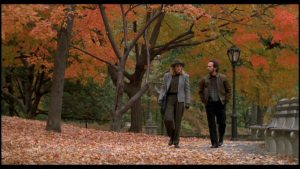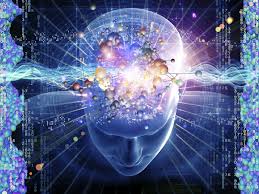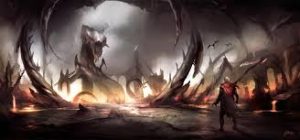
Hauntings of the Hudson Valley: Landscapes, and Ghosts
Michael Brassea is from Frankfort, Illinois. He'll be graduating May 2015 with bachelor in English. He is an avid Chicago Bulls fan rarely misses a game even here in Missouri. He also loves to run, co-founding the Mimosa Court Track club with his former roommates here. He wrote "Hauntings of the Hudson" for Dr. Luanne Roth's…

A Conscious Universe
Sean Donovan is a sophomore biology major from Wildwood, Missouri. He chose to write A Conscious Universe out of interest in the reoccurring concept of fate and divine predestination in the works of the Middle Ages. Not being a believer in such concepts himself, he specifically wanted to explore some of the reasons that might…

The Cultural Power of Iron in Early Africa
Iron played a central role in many societies of early Africa. It held both spiritual and material power. Physically, Africans used iron to create tools for agriculture, utensils for everyday life, and weapons for protection and conquest (Shillington, 2012, p. 45). Spiritually, Africans considered iron potent. Because of the elemental forces wielded to create iron…

Birth of a Workforce: The Blacksmiths Rise in Sub-Saharan Africa
The “Ritual Staff with Seated Nommo” made by the Dogon people from modern Mali available at the University of Missouri Museum of Art and Archeology represents the rise in specialized occupations in early Africa and demonstrates the complex techniques of…

Books: Or, A Brief History of a Fleeting Love Affair
Peter Francis Myers is currently a junior, studying Secondary Math Education and is proud to call Kirkwood, Missouri his home. His paper was originally an assignment for the class LTC 4560: Reading & Writing in the Content Areas, and what started as a stream of consciousness set to the music of “Vance Joy” was later…

I Love that It Takes You an Hour and a Half to Order a Sandwich
When discussing the reasoning behind the dialogue-driven plot in When Harry Met Sally (Rob Reiner, 1989), writer Nora Ephron explained that, “People who live in cities aren’t in car chases. We don’t get shot at. What we mainly do is talk on the phone and have dinner” (Kimmel, 2008, p. 194). The basis of action…

Divine Matrix
According to Braden, Divine Matrix is “the container that holds the universe, the bridge between all things, and the mirror that shows us what we have created” (p. 4). This definition comprises three components that frame Divine Matrix: container, bridge, and mirror. The current issue of Artifacts gives a good example of the Divine Matrix in education.

Care for Life? The Failing System of Nursing Home Care in the United States
The phrase “respect your elders” is ingrained in most minds at a young age. This phrase, however, has been lost somewhere. A lack of respect for the elderly is especially present in the quality of health care they receive. Not only are the elderly discriminated against in the US health care system, many of their health problems are cast off as “getting old.”

Elijah’s Inferno
Elijah Solidum is a junior student, majoring in International Business Management. His hometown is Nevada, MO, but he has lived in the Philippines, New York, and New Hampshire. He chose to write “Elijah's Inferno” because he had read Dante's Inferno in class that semester, and he wanted to put a personal and more modern spin on Dante's masterpiece.

How to Live a Life
Living life as a human, on planet Earth, is a phenomenon that anyone who is ever written a single word has perfect experience with. It would be impossible not to. For better or for worse, we all share the same fundamental experience. Separation in space or time can certainly alter how two people view the world. The overwhelming consensus, however, whether revealed through science, or the vast array of parallels in our art, religion, and literature, point to one fact. We are vastly more similar to one another than we are different. Of all these similarities, one would be hard pressed to find some more striking than the reoccurring stories we have told each other over the vast course of our history.